Fire (Hindi: ????) is a 1996 Indian-Canadian romantic drama film written and directed by Deepa Mehta, starring Shabana Azmi and Nandita Das. It is the first installment of Mehta's Elements trilogy; it is succeeded by Earth (1998) and Water (2005).
| Fire | |
|---|---|
Film poster | |
| Directed by | Deepa Mehta |
| Produced by |
|
| Written by | Deepa Mehta |
| Starring |
|
| Music by | A. R. Rahman |
| Cinematography | Giles Nuttgens |
| Edited by | Barry Farrell |
Production companies |
|
| Distributed by | Zeitgeist Films |
Release date |
|
Running time | 108 minutes |
| Country |
|
| Language |
|
| Box office | $501,533 |
The film is loosely based on Ismat Chughtai's 1942 story, Lihaaf (The Quilt). It was one of the first mainstream Bollywood films to explicitly show homosexual relations. After its 1998 release in India, certain groups staged several protests, setting off a flurry of public dialogue around issues such as homosexuality and freedom of speech.
Screenplay
The film opens with young Radha sitting in a mustard field with her parents. Her mother tells her a tale of a person who wanted to see the ocean, but Radha says that she does not understand the moral of the story.
The film flashes forward to Sita, a newly married woman on honeymoon with her husband Jatin, who is distant and shows little interest in Sita. Jatin is in a typical joint-family arrangement - he lives with his older brother Ashok, his sister-in-law Radha, his paralysed mother Biji and the family servant Mundu. Ashok and Jatin run a small store that sells food and rents videotapes.
Jatin shows no care for Sita, and she learns that he only agreed to the arranged marriage in order to put an end to Ashok's nagging. Jatin continues to date his modern Chinese girlfriend, and Sita does not rebuke him. The rest of Jatin's home is not rosy either. Biji is immobile and speechless after a stroke, and Sita and Radha must constantly attend to her. Sita spends her days slaving in the hot kitchen, and finds herself lonely and frustrated at night because Jatin is out with his girlfriend. She yearns to break out of this stifling situation.
It is revealed that Radha faces a similar problem. Many years ago, Ashok had come under the influence of Swamiji, a local religious preacher, who teaches that desires are the cause of suffering and must be suppressed. Ashok is completely taken by these monastic teachings and suppresses all his desires. He also donates large sums from the meager store income to treat the Swamiji's hydrocele condition. The Swamiji teaches that sexual contact is permitted only as a means for procreation, and Radha is infertile. Accordingly, Ashok aims to stamp out all his desires and has not slept with Radha for the past thirteen years. He puts Radha through an excruciating ritual in which they lie motionless next to each other whenever he wants to test his resolve. Radha is racked with guilt over her inability to have children and driven to frustration by the ritual.
While the older Radha remains bound by tradition and subdued into silence, the younger Sita refuses to accept her fate. Sita's attitude slowly spills over onto Radha, who becomes slightly more assertive. One evening, shunned by their husbands and driven to desperation by their unfulfilled longings, Radha and Sita seek solace in each other and become lovers. Overjoyed at finding satisfaction in this manner, they continue it in secret. They eventually realise their love for each other and start looking for ways to move out. The pair's daily antics and adventures are witnessed by Biji, who disapproves, but is unable to stop them. After some time, Mundu becomes aware of their relationship, and he causes Ashok to walk in on Radha and Sita.
Ashok is horrified. He is also shattered when he finds this incident has stoked his own long-dormant desire. Sita decides to pack her belongings and leave the house immediately, while Radha stays behind in order to talk to her husband. The women promise to meet each other later that night. Ashok confronts Radha, who overcomes her subservience and pours out her emotions. Amid this argument, Radha's sari catches fire, and Ashok angrily watches her burn without helping. Radha puts out the flames and recalls her mother's advice from when she was young - she can finally see her ocean.
An injured Radha leaves Ashok, moving out in order to join Sita.
- Nandita Das as Sita
- Shabana Azmi as Radha
- Karishma Jhalani as young Radha
- Ramanjit Kaur as Young Radha's mother
- Dilip Mehta as Young Radha's father
- Javed Jaffrey as Jatin
- Vinay Pathak as Guide at Taj Mahal
- Kushal Rekhi as Biji
- Ranjit Chowdhry as Mundu
- Kulbhushan Kharbanda as Ashok
- Alice Poon as Julie
- Ram Gopal Bajaj as Swamiji
- Ravinder Happy as Oily man in video shop
- Devyani Saltzman as Girl in video shop
- Sunil Chabra as Milkman on bicycle
- Avijit Dutt as Julie's father
- Shasea Bahadur as Julie's brother
- Meher Chand as Goddess Sita
- Bahadur Chand as God Ram
- Puran, Sohan Lal, Meher, Amarjit Chand, and Karahm Chand as 'Ramayan' theatrical troupe members
- Kabir Chowdhury as Boy in video shop
- Laurence Côte as French tourist at the Taj Mahal
Fire was passed uncut by India's censor board (the Central Board of Film Certification) in May 1998 with a rating of Adult, the only condition being that the character Sita's name be changed to Nita. The film was first screened on 13 November 1998 and ran to full houses in most metropolitan cities throughout India for almost three weeks.
On 2 December, more than 200 Shiv Sanaiks stormed a Cinemax theatre in suburban Goregaon in Mumbai, smashing glass panes, burning posters and shouting slogans. They compelled managers to refund tickets to moviegoers. On 3 December, a Regal theatre in Delhi was similarly stormed. Bajrang Dal workers with lathis invaded Rajpalace and Rajmahal in Surat, breaking up everything in sight and driving away frightened audiences. Theatres in Surat and Pune stopped screening the film on the same day. When attackers attempted to shut down a screening in Calcutta, however, ushers and audience fought back and the movie stayed open. Twenty-nine people were arrested in Mumbai in connection with these incidents. Chief Minister Manohar Joshi supported the actions to shut down screenings of Fire, saying, "I congratulate them for what they have done. The film's theme is alien to our culture."
On 4 December, the film was referred back to the Censor Board for a re-examination. The Indian government was criticised for siding with the vandals. On 5 December a group of film personalities and free speech activists, including Deepa Mehta, Indian movie star Dilip Kumar, and director Mahesh Bhatt, submitted a 17-page petition to the Supreme Court asking that a "sense of security" be provided, in addition to basic protection, so that the film could be screened smoothly. The petition referenced articles 14, 19, 21, 25 of the Indian Constitution, which promise the right to equality, life and liberty, freedom of speech and expression, freedom of conscience, free expression of religious practice and belief, and the right to hold peaceful meetings.
On 7 December, Mehta led a candlelit protest in New Delhi with activists from 32 organisations against the withdrawal of Fire, carrying placards, shouting anti-Shiv Sena slogans and crying for the freedom of right to expression. On 12 December about 60 Shiv Sena men stripped down to their underwear and squatted in front of Dilip Kumar's house to protest his support of Fire. 22 were arrested and Kumar, as well as others involved in the production of the film were provided with police security.
Cinemax reopened screenings of Fire on 18 December, but a hundred members of the Bharatiya Janata Party (BJP) vandalised posters at the Sundar Theatre in Kanpur despite the police commissioner's reassurance that protection has been arranged. Fire was re-released without cuts by the Censor Board on 12 February 1999. Theatre screenings were resumed on 26 February and continued without incident.
In the weeks following its release, reviewers praised the film's explicit depiction of a homosexual relationship as "gutsy", "explosive", and "pathbreaking". Following the Shiv Sena attacks on the film, prominent party members said Fire had been targeted because it was an "immoral and pornographic" film "against Indian tradition and culture." The lesbian relationship depicted in the film was criticised as "not a part of Indian history or culture." Other politicians of the Hindu right voiced fears that the film would "spoil women" and younger generations by teaching "unhappy wives not to depend on their husbands" and informing the public about "acts of perversion." Speaking on the dangers of Fire, Shiv Sena chief Bal Thackeray compared lesbianism to "a sort of a social AIDS" which might "spread like an epidemic." Furthermore, Thackery claimed that the film was an attack on Hinduism because the protagonists were named Sita and Radha, both significant goddesses in Hindu belief, and that he would withdraw his objections to the film if the names were changed to Muslim names.
A statement issued from the Shiv Sena's women's wing said, "If women's physical needs get fulfilled through lesbian acts, the institution of marriage will collapse, reproduction of human beings will stop." Critics charged the Shiv Sena of committing "cultural terrorism" and of using the rhetoric of "Indian tradition" to protest images of female independence and suppress freedom of speech. "The justification for action... demonstrates that Indian 'culture' for the Sangh Parivar is defined essentially in terms of male control over female sexuality."
Gay activist Ashok Row Kavi criticised the Shiv Sena's protests as "gay-bashing" and disputed their claims that lesbianism was "against Indian tradition", indicating that homosexuality is in fact abundantly present in Hinduism and that the criminalisation of homosexuality was a legacy of British colonialism, heavily informed by Christianity. Pointing to evidence of lesbianism in Indian tradition, he said, "What's wrong in two women having sex? If they think it doesn't happen in the Indian society they should see the sculptures of Khajuraho or Konark."
Feminist critics of Mehta's films argue that Mehta's portrayal of women and gender relations is over-simplified. Noted Indian feminist authors Mary E. John and Tejaswini Niranjana wrote in 1999 that Fire reduces patriarchy to the denial and control of female sexuality. The authors make the point that the film traps itself in its own rendering of patriarchy:
Control of female sexuality is surely one of the ideological planks on which patriarchy rests. But by taking this idea literally, the film imprisons itself in the very ideology it seeks to fight, its own version of authentic reality being nothing but a mirror image of patriarchal discourse. 'Fire' ends up arguing that the successful assertion of sexual choice is not only a necessary but also a sufficient condition—indeed, the sole criterion—for the emancipation of women. Thus the patriarchal ideology of 'control' is first reduced to pure denial – as though such control did not also involve the production and amplification of sexuality – and is later simply inverted to produce the film's own vision of women's liberation as free sexual 'choice.' (1999:582)
Whatever subversive potential 'Fire' might have had (as a film that makes visible the 'naturalised' hegemony of heterosexuality in contemporary culture, for example) is nullified by its largely masculinist assumption that men should not neglect the sexual needs of their wives, lest they turn lesbian (1999:583).
The authors additionally argue that viewers must ask tough questions from films such as Fire that place themselves in the realm of "alternative" cinema and aim to occupy not only aesthetic, but also political space (Economic and Political Weekly, 6–13 March 1999).
Madhu Kishwar, then-editor of Manushi, wrote a highly critical review of Fire, finding fault with the depiction of the characters in the film as a "mean spirited caricature of middle class family life among urban Indians". She claimed that homosexuality was socially accepted in India as lo
Watch movie Fire 1996 Film online on Amazon
Watch movie Fire 1996 Film online
Watch The Movie On PrimeKhoya Khoya Chand Full HD Movie Download

Aaj Aur Kal Full HD Movie Download
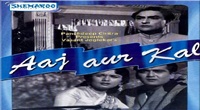
Aafat Full HD Movie Download

Habari Full HD Movie Download

Sharafat (1970) Full HD Movie Download
.jpg)
Yaar Ghaddar Full HD Movie Download
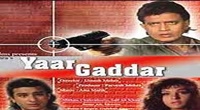
Shaadi Se Pehle (2006) Full HD Movie Download
.jpg)
Beti (1969) Full HD Movie Download
.jpg)
Sakkanodu Full HD Movie Download
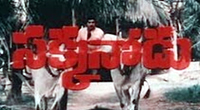
Pasivadi Pranam Full HD Movie Download
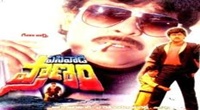
Khudai Full HD Movie Download
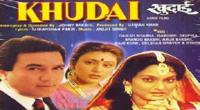
Evadra Rowdy Full HD Movie Download

Raaga Deepam Full HD Movie Download
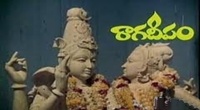
Daadi Maa Full HD Movie Download

Nevada Heat Full HD Movie Download

Samooham Full HD Movie Download

Enga Ooru Paatukkaaran Full HD Movie Download

Bhale Dongalu Full HD Movie Download
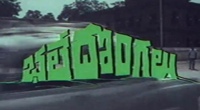
Aakhri Baazi Full HD Movie Download

Ankhon Mein Tum Ho Full HD Movie Download

Geetanjali Full HD Movie Download

Download latest Movie from bollywood
- 1> baaghi 3
- 2> THE SKY IS PINK MOVIE FULL STORY AND REVIEW
- 3> Luka Chuppi
- 4> TO ALL THE BOYS I’VE LOVED BEFORE
- 5> Kabir Singh
- 6> Street Dancer 3D
- 7> Simmba
- 8> Gone Girl
- 9> The Girl Who Lived
- 10> Ludo
- 11> DILWALE DULHANIA LE JAYENGE
- 12> GUILTY
- 13> The Godfather
- 14> Adventures of Rusty
- 15> Sooryavanshi
- 16> Satyameva Jayate 2
- 17> Thappad
- 18> Bhool Bhulaiyaa 2
- 19> KGFChapter 2
- 20> Mardaani 2
- 21> Pinjar
- 22> Shivaji maharaj
- 23> Ek Villian 2
- 24> Hungama 2
- 25> Divergent
- 26> Mumbai Saga
- 27> The Internship
- 28> HIT (telugu)
- 29> Panga
- 30> The perfect date
- 31> 16 December
- 32> Gopala Gopala (Telugu)
- 33> Brahmastra
- 34> Gangubai Kathiawadi
- 35> Manmadhudu
- 36> Nenu local
- 37> Mahanati
- 38> Shatamanam bavathi
- 39> Lagaan
- 40> After
- 41> MOM
- 42> Shamshera
- 43> Raguvaran BTech
- 44> Khakee
- 45> The villain
- 46> OM
- 47> Mr. perfect
- 48> Bueatifull mind
- 49> Hichki
- 50> Gabbar Singh
- 51> Jogi
- 52> Before Sunrise
- 53> Before Sunset
- 54> Before Midnight
- 55> The Big Bull
- 56> Top Gun: Maverick
- 57> The Purge
- 58> The Sky is Pink
- 59> Laxmmi Bomb
- 60> Sadak 2
- 61> Sufna
- 62> Prithviraj
- 63> PK
- 64> Coolie No 1(2020)
- 65> Black Widow
- 66> Dear Zindagi
- 67> Dil Bechara
- 68> PHIR HERA PHERI
- 69> WAR
- 70> Dostana
- 71> RRR: Roudram Ranam Rudhiram
- 72> Maidan
- 73> Dabbang 3
- 74> Chhalaang
- 75> life as we know it
- 76> SherShaah
- 77> Sandeep Aur Pinky Faraar
- 78> Event Horizon
- 79> 83
- 80> Radhe: Your Most Wanted Bhai
- 81> Gunjan Saxena: The Kargil Girl
- 82> Mr India
- 83> Vivah
- 84> Anokha Bandhan
- 85> Ghost
- 86> Bhoot: Part One - The Haunted Ship
- 87> Haseen Dilruba
- 88> Laal Singh Chaddha
- 89> Qismat
- 90> Rajput
- 91> Drive
- 92> Dil Chahta Hai
- 93> Dil Ki Baazi
- 94> Dil Ka Rishta
- 95> Teesri Manzil
- 96> Dil
- 97> Love Aaj Kal
- 98> Khaali Peeli
- 99> Bunty Aur Babli 2
- 100> Atrangi Re
- 101> Gulabo Sitabo
- 102> Jodi
- 103> Suraj Pe Mangal Bhari
- 104> Deewana
- 105> Attack
- 106> Sardar Udham Singh
- 107> Toofan
- 108> THE LOVEBIRDS
- 109> Jersey
- 110> Ginny Weds Sunny
- 111> Thalaivi
- 112> Shiddat
- 113> Angels vs Zombies
- 114> Koi Mil Gya
- 115> Thank God
- 116> Bhuj: The Pride of India
- 117> Hum Aapke Hain Kaun
- 118> The Platform
- 119> Bird Box
- 120> Roohi Afzana
- 121> Torbaaz
- 122> Nikamma
- 123> World War Z
- 124> Extraction
- 125> Train to Busan
- 126> Life of Pi
- 127> SHAADI MEIN JROOR AANA
- 128> Himmat Aur Mehnat
- 129> To All The Boys: P.S. I Still Love You
- 130> Mimi
- 131> Good Newwz
- 132> Shubh Mangal Zyada Saavdhan
- 133> Raabta
- 134> Harry Potter and the Philosopher's Stone
- 135> Harry Potter and the Chamber of Secrets
- 136> Chhapaak
- 137> War of the Worlds
- 138> Harry Potter and the Prisoner of Azkaban
- 139> Harry Potter and the Goblet of Fire
- 140> MURDER MYSTERY
- 141> Shakuntala Devi
- 142> Bachchan Pandey
- 143> Jayeshbhai Jordar
- 144> Sheer Qorma
- 145> Saina
- 146> 'O' Pushpa I hate tears
- 147> Kedarnath
- 148> MS Dhoni The Untold Story
- 149> Chhichhore
- 150> Badhaai Ho
- 151> Unstoppable
- 152> Oz the Great And Powerful
- 153> The Girl on the Train
- 154> Haathi Mere Saathi 2020
- 155> The Conjuring: The Devil Made Me Do It
- 156> Gandhi Se Pehle Gandhi
- 157> The Song of Scorpions
- 158> Srimanthudu
- 159> Hello Guru Prema Kosame
- 160> Beauty and The Beast
- 161> Black Panther
- 162> Charlie and the Chocolate Factory
- 163> Bole Chudiyan
- 164> Fidaa
- 165> Duvvada Jagannadham
- 166> Bruce Lee: The Fighter
- 167> Hyper
- 168> Yaara
- 169> Red (2020)
- 170> Shivam
- 171> That Is Mahalakshmi
- 172> Nishabdham
- 173> Aashram 2020 web series
- 174> Laxmii
- 175> Mismatched
- 176> STUDENT OF THE YEAR 2
- 177> NAIL POLISH
- 178> Ramprasad Ki Tehrvi
- 179> KAAGAZ
- 180> 12 o Clock
- 181> The Power
- 182> bolo hau
- 183> Tribhanga
- 184> JAMUN
- 185> Madam Chief Minister
- 186> Maasaab
- 187> Aadhaar
- 188> Tanhaji
- 189> Bhaagi 3
- 190> Bhootnath
- 191> MALANG
- 192> Jai Mummy Di
- 193> Haathi Mere Saathi 2021
- 194> Shakeela
- 195> Unpaused
- 196> Annayya
- 197> Vamsoddharakudu
- 198> Mrugaraju
- 199> Narasimha Naidu
- 200> Sankranti
- 201> Manasu Maata Vinadhu
- 202> Anjaane
- 203> Apaharan
- 204> Bachke Rehna Re Baba
- 205> Bewafaa
- 206> Roohi
- 207> Radhe
- 208> Zindagi Khoobsoorat Hai
- 209> Yeh Mohabbat Hai
- 210> Yeh Kya Ho Raha Hai?
- 211> The Tomorrow War
- 212> DehradunDiary
- 213> Meri Shaadi Karaoo
- 214> Matruu Ki Bijlee Ka Mandola
- 215> No One Killed Jesica
- 216> Aag Ka Goola
- 217> Eight Million Dollars
- 218> Three Hundred
- 219> Cats and Dog
- 220> Decoy
- 221> Gold Rush
- 222> You Have Got Mail
- 223> Final Destination three
- 224> Tofan
- 225> Jungle
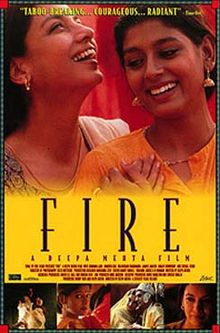 Story of movie Fire 1996 Film :
Story of movie Fire 1996 Film : 